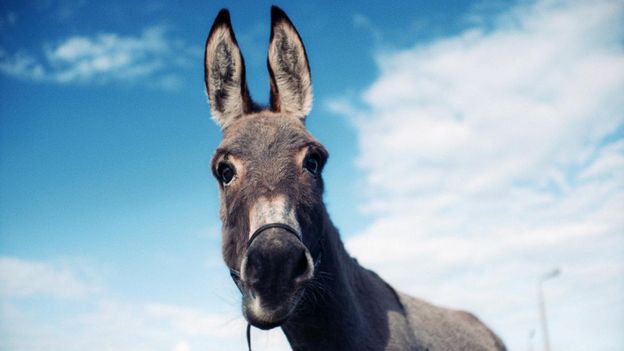EO: Cinema's ultimate scene-stealers
In a landmark 2009 essay, the influential author John Berger argued that capitalist societies had commodified images of animals, reducing them to pictures of innocence. In our daily lives, he wrote, animals had been consigned to the realms of family or spectacle – most obviously, as pets or in zoos.
EO, the latest feature from the Polish filmmaker Jerzy Skolimowski, departs from the historically showy, contrived and stunt-packed performances of animals in cinema, from the early caper Bout de Zan Vole un Eléphant (1913), in which a child steals an elephant from a circus, to Fearless Fagan (1952), where a newly enlisted soldier brings his pet lion to the barracks. In his understated and yet emotionally devastating new film, Skolimowski, director of Le Départ (1967), creates instead a more subtly crafted portrayal of an animal's experience. With shots that linger on EO's pensive, wistful eyes and shot-reverse-shots that capture his gaze, the film makes a blisteringly compelling case for what it might be like to experience the world as a donkey.
Continued here